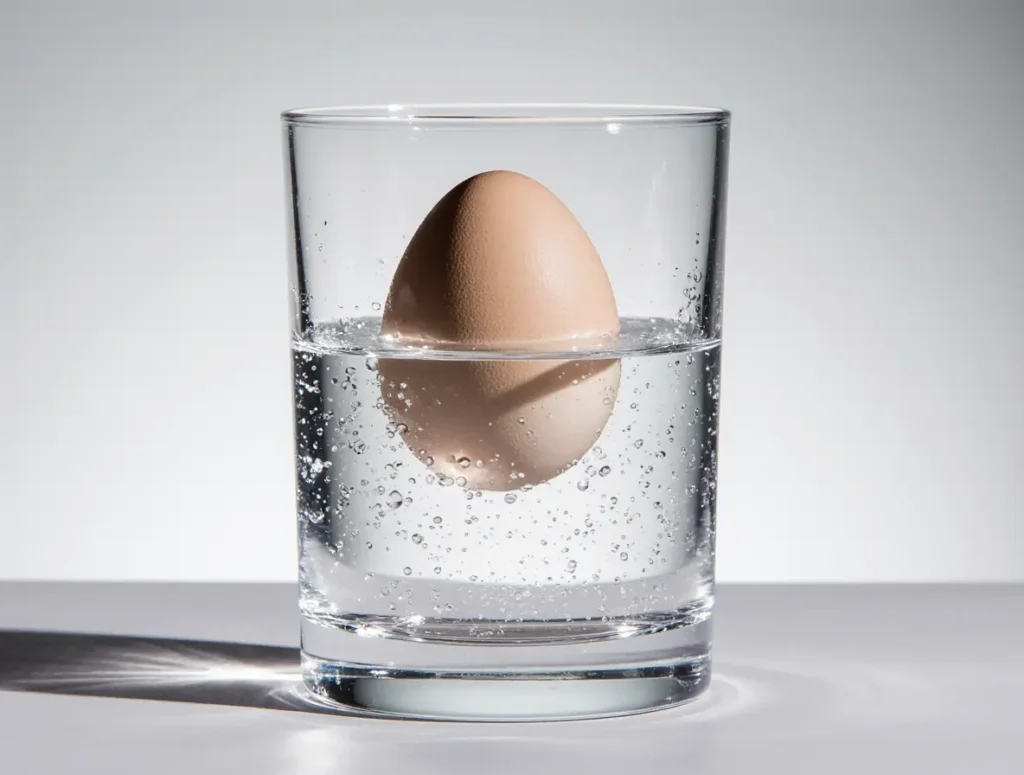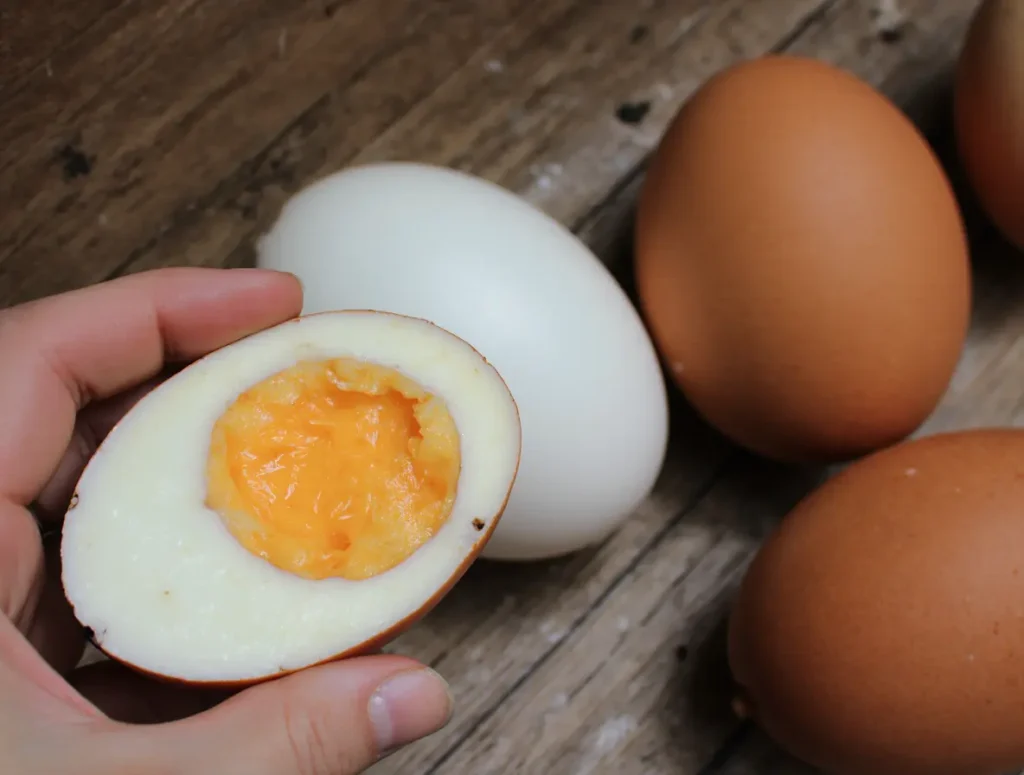Eggs are a kitchen staple in almost every home, whether you’re whipping up a quick breakfast, baking a cake, or making a hearty dinner. But have you ever stopped to wonder, how long do eggs last? More importantly, how can you tell if they’re still fresh and safe to eat? Knowing this not only saves you money but keeps you safe from foodborne illnesses. Think of eggs as little time capsules of nutrition — but like all time capsules, they have an expiration date.
In this guide, we’ll crack open everything you need to know about the lifespan of fresh eggs, the best ways to store them, and tips to make the most out of your egg supply without risking spoilage. Ready to become an egg expert? Let’s dive in!
Table of Contents
Why Does Egg Freshness Matter?
Eggs might seem simple, but they’re surprisingly delicate. Freshness matters because eggs can spoil, leading to unpleasant odors, taste, and even food poisoning. The bacteria Salmonella can thrive in old eggs, which is no joke when it comes to your health.
Imagine you bought a carton of eggs but left them in your pantry instead of the fridge. It’s like leaving milk out on a hot day—it might look okay for a bit, but the clock is ticking fast toward spoilage. Just like you wouldn’t want to drink spoiled milk, eating bad eggs can cause real stomach troubles.
Eggs also lose their quality over time. The whites become watery, yolks flatten, and they won’t perform well in recipes. That fluffy omelet you wanted might end up more like scrambled disappointment!
How Long Do Fresh Eggs Last in the Fridge?
The golden rule for fresh eggs is: store them in the refrigerator. The cool temperature slows bacterial growth and helps maintain their quality.
Generally, fresh eggs can last 3 to 5 weeks in the fridge after you bring them home. This is counting from the day you purchase them, not from the day you bought the chicken feed! The USDA recommends keeping eggs refrigerated at or below 40°F (4°C) to maximize their shelf life.
Think of the fridge like a cozy winter blanket for your eggs, keeping them snug and safe for longer. But be mindful—if you leave eggs on the fridge door, where the temperature fluctuates often due to frequent opening, you’re inviting spoilage sooner. It’s better to keep eggs on a middle shelf inside the fridge, where the temperature stays consistent.
How to Tell If Eggs Are Still Fresh
You don’t always have to rely on expiration dates on cartons. Sometimes, eggs can last a bit longer or spoil sooner depending on storage and handling. So, how do you tell if an egg is still good? Here are a few simple tests you can try at home:
The Water Float Test
Fill a bowl with cold water and gently place the egg inside. Fresh eggs usually sink and lay flat on the bottom. If the egg stands upright or floats, it’s a sign the egg is older and air has seeped in, causing it to lose freshness. Floating eggs should be discarded.

This test works because eggshells are porous, and as time passes, air penetrates the shell. It’s like a tiny balloon slowly filling with air until it floats.
The Sniff Test
If you’re still unsure after the float test, crack the egg open on a plate and give it a sniff. Fresh eggs have a neutral smell. If there’s a strong sulfur or rotten odor, toss it immediately. Trust your nose—it rarely lies!
Visual Inspection
Look at the egg white and yolk. Fresh egg whites are thick and gel-like, surrounding a firm yolk. Older eggs have watery whites and flattened yolks. While watery whites don’t always mean the egg is unsafe, it can affect taste and texture.

Can You Eat Eggs Past the Expiration Date?
This is a common question: can you eat eggs after their “sell-by” or expiration date? The answer is… maybe. Egg cartons usually show a sell-by or expiration date, but these are often conservative estimates.
If eggs have been properly refrigerated, they can remain safe to eat for several weeks after that date, sometimes up to 3-5 weeks. The key is to perform freshness tests like the float or sniff test before deciding.
Think of expiration dates as a “best by” suggestion rather than a strict deadline. Much like bread that’s a bit stale but still edible, eggs past their date might still be good, but caution is key.
How to Store Eggs to Maximize Freshness
Proper storage is crucial to making your eggs last longer. Here are some tips:
- Keep eggs in their original carton: The carton protects eggs from absorbing strong odors and flavors from other foods in the fridge. Plus, it helps prevent moisture loss.
- Store eggs in the coldest part of the fridge: Usually the middle or bottom shelves, away from the door.
- Avoid washing eggs before storing: Washing can remove the natural protective coating on the eggshell, making them more vulnerable to bacteria.
- Use a thermometer to keep your fridge at 40°F or below: A constant, cool temperature slows bacterial growth.
By treating your eggs like delicate treasures—stored carefully and protected—you extend their shelf life and maintain quality.
Freezing Eggs: Can You Freeze Fresh Eggs?
If you’ve got more eggs than you can use before they go bad, freezing is an option—but not in their shells. Freezing whole eggs in the shell can cause cracking and spoilage.
Here’s how to freeze eggs safely:
- Crack the eggs into a bowl and gently beat until the yolk and whites are combined.
- Pour the mixture into an ice cube tray or freezer-safe container.
- Label with the date and freeze for up to one year.
- When ready to use, thaw in the fridge overnight and use within 24 hours.
Freezing eggs is like pressing pause on time, helping you avoid waste and always have eggs ready for recipes.
What Happens If You Eat Bad Eggs?
Accidentally eating spoiled eggs can lead to food poisoning. Symptoms typically include nausea, vomiting, diarrhea, stomach cramps, and sometimes fever.
Foodborne illnesses from eggs often come from Salmonella, a bacteria that can be present inside eggs. Cooking eggs thoroughly usually kills this bacteria, but eating raw or undercooked eggs is riskier.
If you experience severe symptoms or dehydration after eating bad eggs, it’s important to see a doctor promptly. To keep safe, always store eggs properly and check freshness before use.
Expert Advice on Egg Freshness
Nutritionists and food safety experts emphasize that while eggs are nutritious and versatile, safe handling is essential.
Dr. Jane Miller, a food safety expert, advises, “Eggs should always be refrigerated and used within the recommended time frame to prevent bacterial growth. When in doubt, conduct freshness tests and don’t risk consuming eggs that seem off.”
According to the American Egg Board, freshness can also be judged by how eggs perform in cooking. Fresher eggs hold their shape better in frying and poaching, while older eggs are better suited for baking, where structure matters less.
Common Myths About Egg Freshness
Let’s clear up a few common misconceptions:
- Myth 1: Eggs last forever if refrigerated. Not true. Even refrigerated eggs have a shelf life of 3-5 weeks.
- Myth 2: Washing eggs before storing makes them last longer. Washing removes the protective coating, so it’s better not to wash them until right before use.
- Myth 3: If an egg doesn’t smell bad, it’s safe to eat. Sometimes eggs can harbor bacteria without a noticeable odor. Always check for signs of spoilage and cook eggs thoroughly.
- Myth 4: All eggs are created equal in freshness. Farm-fresh eggs often have a longer natural protective coating and may last longer than commercially processed eggs.
Understanding the facts helps you make smarter choices in the kitchen.
Creative Ways to Use Eggs Near Expiration
If you notice your eggs are nearing the end of their freshness but are still safe, try these ideas:
- Make homemade mayonnaise or aioli (with pasteurized eggs).
- Bake cakes, muffins, or pancakes where texture is forgiving.
- Prepare egg-based sauces like hollandaise or custards.
- Hard boil eggs for salads or snacks.
Using eggs creatively reduces waste and adds delicious variety to your meals.
Conclusion
So, how long do eggs last? Fresh eggs stored properly in the fridge can last 3 to 5 weeks, sometimes longer, but always trust your senses and freshness tests. Storing eggs carefully, avoiding washing them prematurely, and knowing how to test their freshness can save you money and protect your health.
Think of eggs as delicate little packages of nutrition and flavor that need care—like a cherished book you want to keep pristine. With these tips, you’ll never second-guess your eggs again and can enjoy them safely in every meal.
Frequently Asked Questions (FAQs)
1. How can I tell if my eggs are still good?
Try the water float test—fresh eggs sink, older eggs float. Also, crack the egg and check for odor or discoloration. If it smells bad or looks off, discard it.
2. Is it safe to eat eggs past their expiration date?
If properly refrigerated and passing freshness tests, eggs can be safe for up to 3-5 weeks past the expiration date. Always check before consuming.
3. Can I freeze eggs in their shells?
No. Freezing eggs in shells causes cracking. Instead, beat eggs and freeze them in containers or ice cube trays.
4. Should I wash eggs before storing them?
No, avoid washing eggs before storage. Washing removes the natural protective coating, increasing risk of spoilage.
5. What are the risks of eating bad eggs?
Eating spoiled eggs can cause food poisoning, symptoms include nausea, vomiting, diarrhea, and stomach cramps. Always store and check eggs properly.

